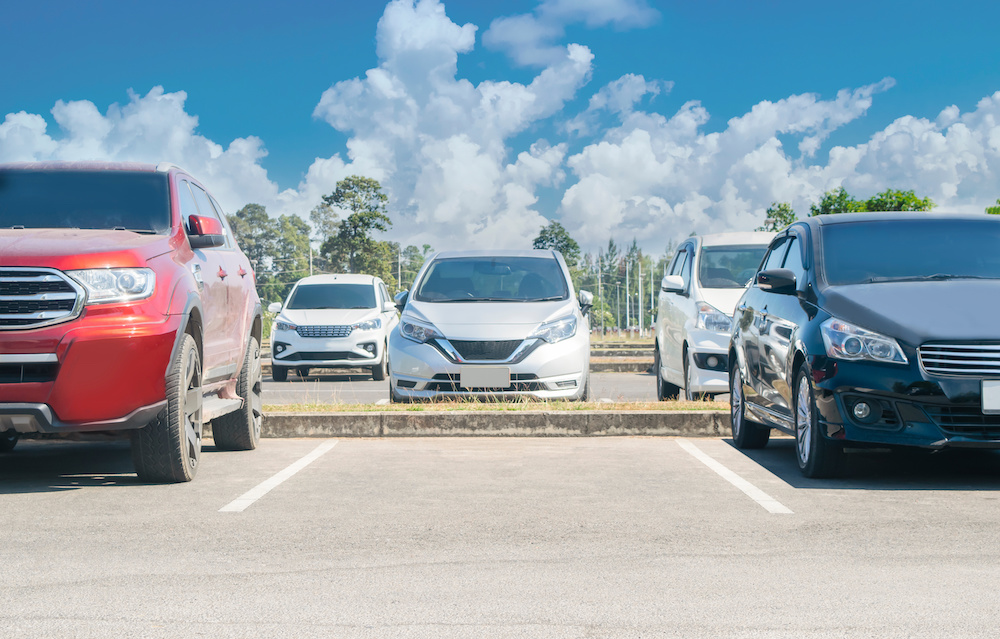Seeing Potential in Pavement in College Towns
Seeing Potential in Pavement in College Towns
Excerpt from Sacred Spaces, Innovative Places with permission from the Cooperative Baptist Fellowship.
Whether your town is host to college game day or just the local fall festival, creatively using the parking lot on your church property can potentially generate funds. Two Cooperative Baptist Fellowship churches are notable examples of rethinking the profit in pavement.
Auburn First Baptist Church is just steps away from the Auburn University campus. For university home football games, it rents the spaces in its parking lots. The funds raised from parking don’t go toward the operating budget. As seen with Covid and the empty football stands, those funds are not guaranteed. Instead, the church allocates a set amount for vehicle maintenance and splits the remaining earnings between an account for youth camps and retreats and the youths’ missions giving fund.
Youth and their parents work the football games parking vehicles to earn funding toward the trips they take with the church. By working just two games, most students can pay for the trips they’ll be taking throughout the year. The youth group also collectively decides to donate a portion of their funds to meet needs outside of their community.
First Baptist Church of Raleigh, North Carolina is in year three of operating a food truck called “And Also With ‘Cue” out of its parking lot. The church used to rent its parking spots to those who work downtown.
A few years ago, FBC Raleigh had funds for a small missions grant. Their then-new Minister with Community steered an idea to include a local barbecue pit master. David With, minister and church member, was interested in beginning a food truck from which to sell his barbecue and the pastor had give-back concept in mind. This allows a person to purchase a meal from the food truck and by doing so, provide a meal for a hungry neighbor in the community. The downtown location was prime to draw business from the many state employees who work in the area.
Both congregations were able to see potential in a part of the church many do not often consider when thinking about assets. They both saw ways that the space outside their walls could draw those who might not otherwise ever step foot on the church’s grounds.
Auburn FBC’s Associate Pastor says that by pricing their spots at a competitive rate they can provide a needed service and involve the youth in learning firsthand about stewardship. Their youth can both contribute to the decision-making about how funds are spent and offer a greater amount together than they would be able to offer individually.
At FBC Raleigh, “And Also with ‘Cue” gives its patrons an opportunity to participate alongside the church in community engagement efforts. During the pandemic, giveback meals were provided to first responders and a women’s shelter. Now that the church’s clothing ministry has returned to operation, clients are offered a meal once per month. Reed says that even though there are other options to eat downtown, none of them give patrons the satisfaction of knowing that they are providing a meal for someone else with their purchase.
Both endeavors have had their fair share of challenges. One of the biggest challenges Auburn FBC has faced has been the absence of parking demands during the Covid-19 pandemic. Likewise, at FBC Raleigh, the launch of “And Also with ‘Cue” was delayed by city licensing and food truck approval processes.
Nonetheless, both congregations have worked to overcome challenges and continue the stewardship of any profits in ways that make a substantial difference to those who receive meals and funding as a result of making good use of a seemingly unimportant slab of pavement.
What can be gleaned from these two congregations is how the revenue is stewarded. The proceeds from sales of meals and parking spaces are not being used to pay for building maintenance or staff salaries but to further the church’s mission and are support the local community or broader causes. Every church can look at the potential in its pavement and think creatively about how to steward the revenue to live into its mission.
This story is part of Lake Institute’s story collection, the Faithful Generosity Story Shelf, which highlights congregations and other religious organizations who have sought to use their assets and resources in creative—and sometimes surprising—ways as an expression of faithful giving.
Each entry in our Story Shelf is short enough to be read and discussed during a committee meeting or other group gathering. Our hope is that these accessible vignettes will spark new questions, conversation, and imagination among clergy and laity about what might be possible with the funds, buildings, land, and other resources in their care. If you know a story that should be included in the Story Shelf, suggest it here.
Subscribe
Insights, a bi-weekly e-newsletter, is a resource for the religious community and fundraisers of faith-based organizations that provides:
- Reflections on important developments in the field of faith and giving
- Recommended books, studies and articles
- Upcoming Lake Institute events

